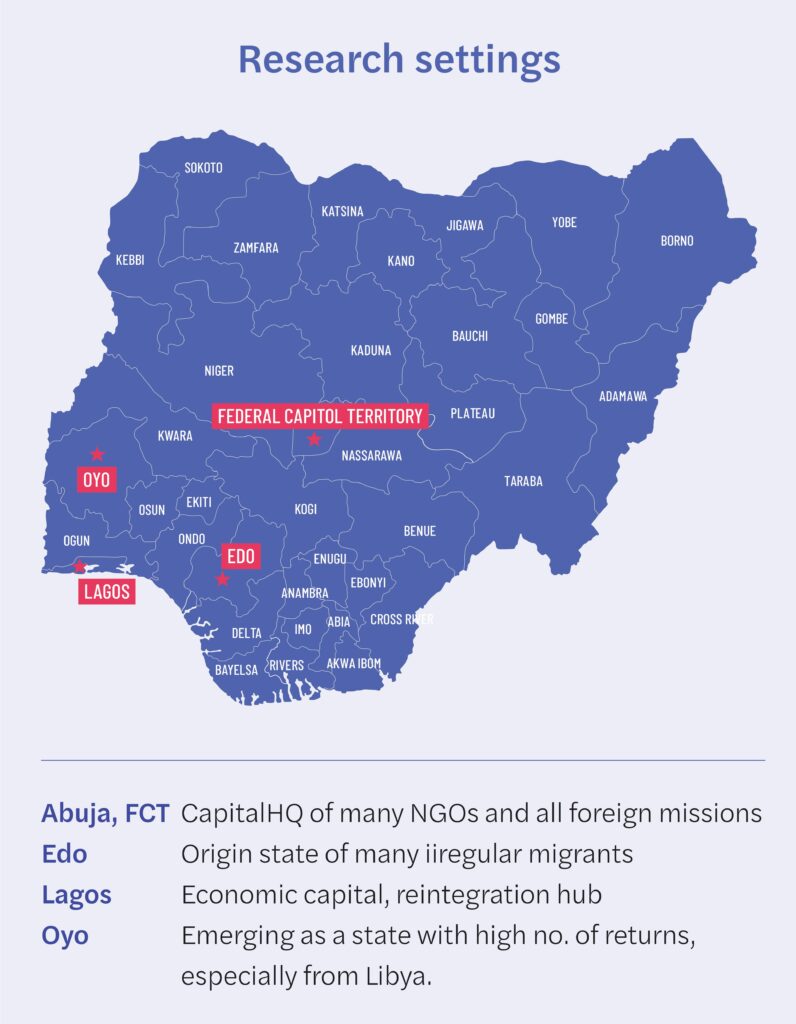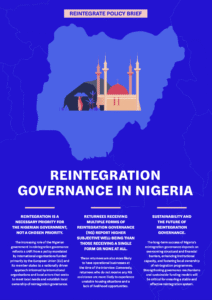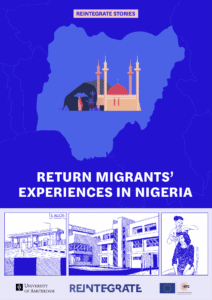Nigeria
Background
Migration from Nigeria has been increasing over the past decade including individuals fleeing violence of Boko Harram, individuals seeking better opportunities in Northern African countries, South Africa or Europe, and migrants that become victims of human trafficking. Return migration has increased from these different flows with large numbers of returnees coming from Libya, Niger, and European countries. Return migrants from these contexts are often vulnerable and need reintegration support.
How it fits with our research
What was researched
The implementation of the SOP for reintegration in Nigeria, how it has been implemented by local actors and how the reintegration support has impacted the reintegration processes of returnees.

Interview location and participants
We conducted fieldwork in Nigeria with a total of 96 participants. Among them were 69 return migrants (including return-migrant victims of trafficking) comprised of 47 women and 22 men.
In addition, we interviewed 27 key stakeholders, representing a diverse range of perspectives. These included officials from federal, state, and local governments, as well as representatives from grassroots initiatives, NGOs, international organizations, and foreign missions.
Key Findings
- Type of return greatly impacts access to reintegration assistance. Participants who received reintegration from multiple stakeholders reported the highest levels of wellbeing. Those who received reintegration assistance from a single stakeholder reported better wellbeing than those who received no assistance at all. This highlights the importance of coordinated, multi-actor support in reintegration assistance provision.
National ownership – The federal government recognises the challenges of reintegration and the responsibility to protect citizens.
Collaborative Policy Development – The National Government works with a diverse group of stakeholders and collaborators for input on reintegration governance.
Longer-term reintegration assistance. Grassroots reintegration assistance providers in Nigeria actively provide longer term reintegration assistance.
Insufficient identification of Victims of Human Trafficking Post-Arrival, and Rehabilitation Assistance. Multiple victims of trafficking were not identified by reintegration assistance providers in this study.
Where to find the detailed findings
More information on the findings from the study is available in the Policy brief. The Policy Brief and Reintegrate Stories (graphic depictions of participants’ experiences) are available here on the Publications page.


